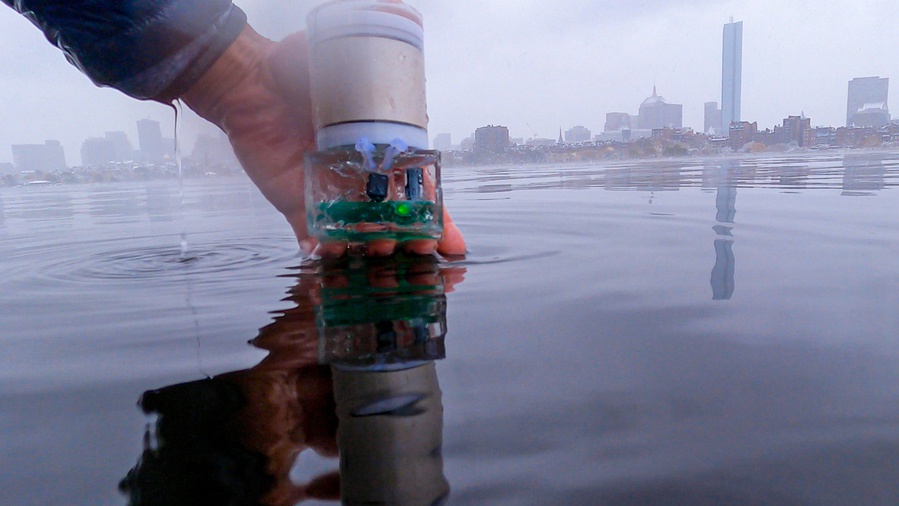A battery-free underwater GPS may sound like an impossibility, but three researchers at the Massachusetts Institute of Technology (MIT) are working to make it happen.
Right now, underwater navigation is dominated by acoustic signaling. Battery-powered devices that produce sound are usually limited by the batteries themselves, which are short-lived and need constant charging. When you’re working on a project—like following the movements of a migrating whale—it can be difficult to recharge the batteries powering the device on the whale.
MIT researchers want to eliminate the battery altogether through a system built on reflecting sound instead of generating it.
The key to their findings is underwater backscatter localization (UBL), a low-power system that works by reflecting acoustic signals from the environment—no batteries needed.
Researchers are still refining the system through tests in Boston’s Charles River. The end goal is to increase UBL’s range and test it in the field, in partnership with collaborators at the Wood Hole Oceanographic Institution on Cape Cod.
“There are so many applications,” researcher Fadel Adib told MIT News. “We’re hoping to understand the ocean at scale. It’s a long-term vision, but that’s what we’re working toward and what we’re excited about.”

